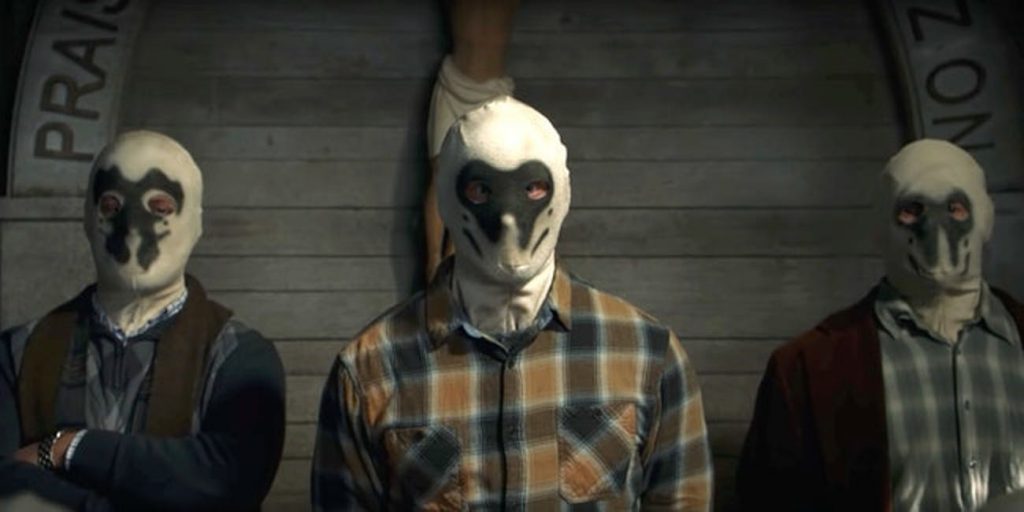Watchmen has long been one of those cornerstones of pop culture that has felt best as a self-contained story. There has been attempts to continue the story in comic form, such as Before Watchmen and Doomsday Clock. However, the main series by the seminal Alan Moore has always stood head and shoulders above such efforts.
Watchmen by Damon Lindelof is an exception, in that it tells a complete story that follows in the footsteps of the original comic book: a story that’s also self-contained, but manages to blend together the significant flourishes of both the original Watchmen and Lindelof’s own stylistic flair. It’s also one of those few current shows that take full advantage of their episodic nature, building in new reveals that kept the audience keep coming back for more.
30 years after the end of the original story, there’s a rising tension building up among the Tulsa police and a group of white supremacists called the Seventh Kavalry. Angela Abar, a former police officer who also doubles as the vigilante Sister Night, starts investigating the Kavalry’s resurgence, and she is soon swept up into a mystery that involves many characters from the original comic book.
There has been much criticism of using racial subtext so blatantly in the story, but it works for the most part.
As new characters come in, we often get glimpses of their past, much in the way the comic book did with Rorschach and Dr. Manhattan. The show takes time to build the backstories and lore, so that when things start to reach a boiling point, there is an urgency in the narrative that keeps the pace flowing.

Much of the show is structured around mysteries. Why did an old man kill the police chief? Where is Adrian Veidt and why does the rest of the world think he’s dead? Who’s Lady Trieu and what is she doing in Tulsa? The show does well in spacing out the answers to these questions. It balances plot and character moments well enough to harken back to the way the original comic book was structured.
Unlike something like Westworld, which focuses too much on complicated narrative structures that trick the viewers instead of connecting to them, Watchmen is distinctly human at its core.
There’s fear, distrust and hatred, yes, but there’s also love, kindness and hope.
Of course, the show wouldn’t be complete without the solid performances from the cast. Regina King does well as a hardened officer who still has a lot of soul, trying to get to the bottom of the mystery. Jeremy Irons gets lots to chew on as Adrian Veidt, and he also gets to act out some of the most outlandish scenes. Jean Smart and Tim Blake Nelson both get their own episodes, but later down the line their roles are minimized in favor of the main plot line.
Although the show has some impressive highs, it takes a while to get there. The first four episodes are convoluted, but their hearts are in the right place. And although the ending is satisfactory, it’s more decent than exhilarating, paling in comparison to the highs of episodes 6 and 8. It wraps up most of the plot threads effectively, it does feel as though everything comes together a little too conveniently.
Overall, Lindelof did a good job of crafting a story that both stands apart from the original story while still feeling like it fits into the larger universe. Will there be a second season? That’s unlikely, since Lindelof has always suggested this was only going to be one season. If that’s the case, then Watchmen stands among the echelons of classics like the first season of True Detective. It’s a complete story as it is, but the cliffhanger ending does leave the door open for more.